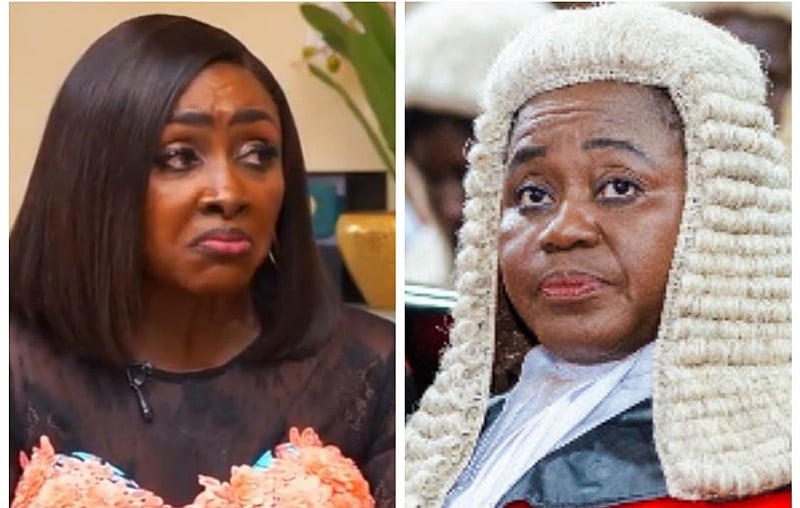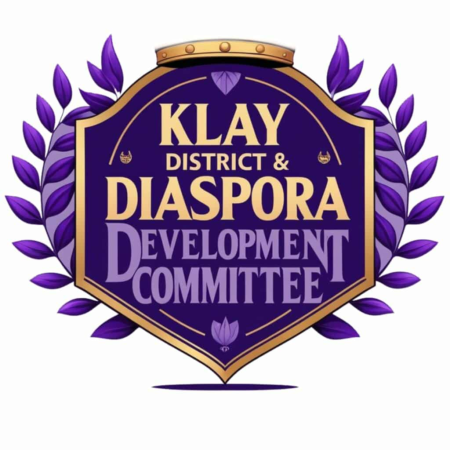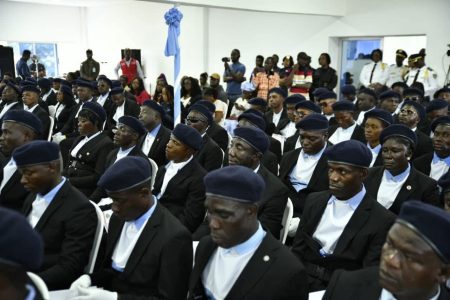The ongoing saga surrounding the suspension of Ghana’s Chief Justice, Gertrude Esaaba Torkonoo, has ignited a fierce debate about due process, judicial independence, and the rule of law. Dr. Hannah Louisa Bissiw, National Women’s Organiser of the National Democratic Congress (NDC), has weighed in on the controversy, urging the suspended Chief Justice to respect the legal processes in place and refrain from further legal challenges. Justice Torkonoo’s suspension stems from three petitions filed against her, which led the Council of State to find a prima facie case, initiating removal proceedings. The Chief Justice has contested the suspension, escalating her legal battle from Ghana’s High Court to the Supreme Court and ultimately to the ECOWAS Court in Abuja, Nigeria, alleging violations of her human rights. Dr. Bissiw, however, contends that the process adheres to Ghanaian law and that Justice Torkonoo should submit to the very legal system she has served.
Dr. Bissiw’s argument centers on the principle of respecting established legal procedures. She maintains that Justice Torkonoo, as a seasoned jurist, should demonstrate faith in the legal framework she herself has upheld throughout her career. While acknowledging she hasn’t delved into the specifics of the case against the Chief Justice, Dr. Bissiw emphasizes the importance of upholding the rule of law, regardless of the individuals involved. Her stance reflects a broader concern about the potential erosion of public trust in the judiciary if its highest-ranking member appears to circumvent the very laws she is entrusted to interpret and apply. The NDC Women’s Organizer’s comments implicitly suggest that Justice Torkonoo’s legal challenges could be perceived as an attempt to evade accountability and undermine the integrity of the legal system.
The controversy highlights the delicate balance between individual rights and the need for accountability within the judiciary. While Justice Torkonoo is entitled to due process and the presumption of innocence, Dr. Bissiw’s perspective underscores the importance of respecting established procedures for addressing allegations of misconduct against judicial officers. The Chief Justice’s pursuit of legal remedies outside of Ghana’s domestic courts has raised questions about her confidence in the impartiality of the national legal system. This action, according to Dr. Bissiw, could be interpreted as a contradiction of her previous role as a guardian of the same legal framework. The implication is that a sitting Chief Justice, who has consistently applied Ghanaian law, should trust the same system when facing allegations herself.
Dr. Bissiw’s comments also touch upon the political undertones often associated with such high-profile cases. By mentioning former President John Dramani Mahama, she indirectly addresses the potential accusation of politically motivated persecution against Justice Torkonoo. Dr. Bissiw asserts that Mahama, who appointed Justice Torkonoo, is not a vindictive individual, suggesting that the suspension process is not driven by personal or political agendas. This assertion seeks to dispel any notion that the proceedings are a politically motivated witch-hunt. Instead, she emphasizes the adherence to established legal procedures, implying that the process is objective and impartial. This attempt to depoliticize the situation underscores the importance of upholding the integrity of the judicial process, regardless of political affiliations.
The case of Justice Torkonoo presents a multifaceted challenge to Ghana’s legal and political landscape. It raises crucial questions about the balance between individual rights and the need to maintain public confidence in the judiciary. Dr. Bissiw’s call for Justice Torkonoo to respect the legal process, while potentially controversial, underscores the principle that everyone, including high-ranking officials, is subject to the law. Her argument rests on the premise that undermining legal procedures could create a dangerous precedent, eroding the very foundations of the justice system. The ongoing debate surrounding this case underscores the critical importance of maintaining transparency and impartiality in the application of law, particularly in matters concerning the integrity of the judiciary itself.
The controversy surrounding Justice Torkonoo’s suspension serves as a stark reminder of the complexities inherent in maintaining an independent and accountable judiciary. Balancing the rights of individuals with the need to uphold the integrity of the legal system is a continuous challenge for any democracy. Dr. Bissiw’s intervention in this debate highlights the importance of respecting established legal procedures, even when they involve individuals in positions of power. While the outcome of this case remains uncertain, it underscores the fundamental principle that no one is above the law and that respecting the legal process is paramount for maintaining public trust in the judiciary. The ongoing debate surrounding Justice Torkonoo’s suspension highlights the complexity of upholding the rule of law, particularly when it involves those entrusted with its interpretation and application. The case serves as a critical juncture in Ghana’s legal history and its resolution will undoubtedly shape the future of judicial independence and accountability in the country.














